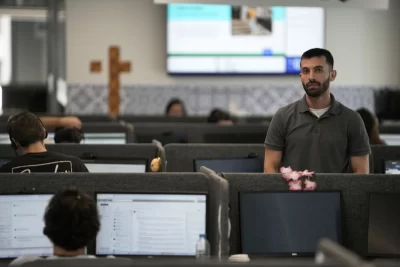
It’s a transaction that would be commonplace for a corporation or a sports team, but it’s the kind of deal that is practically unheard of in the nonprofit sector.
The philanthropy research organization Candid will send control of its CF Insights website and the staff that gathered information about community foundations to the Council on Foundations, the association of nearly 900 nonprofit members, on Friday.
Candid CEO Ann Mei Chang says the shift will allow her nonprofit to focus more sharply on priority areas – including diversity, transparency and effectiveness in the sector – while providing its CF Insights information a larger audience and the potential to expand at the Council on Foundations.
“That was our No. 1 criteria about whether to move forward with this,” Chang said. “We believe more community foundations would be able to benefit from this tool at the Council than from Candid.”
Council on Foundations CEO Kathleen Enright said community foundations are unique civic institutions because they meet so many different needs depending on the area that they serve. Some focus on bringing federal and local money into the community, especially in the wake of disasters, like the way the Hawaii Community Foundation has helped focus donations for those affected by the Maui wildfires. Others aggregate philanthropic donations for a community. Many also serve as homes for the increasingly popular donor-advised funds. Some provide all of these services and more.
Chang said CF Insights can help community foundations see how its peers handled expansion or compensation. And that information pairs well with the Council on Foundations annual surveys on compensation and benefits among community foundations.
In the corporate world, that would be called synergy.
However, nonprofits don’t generally go looking for synergy through mergers and acquisitions or restructuring.
“We don’t have the financial incentive,” Chang said. “In business, the way that you incentivize somebody to give up something that they have that’s good is that you give them a lot of money, right? That doesn’t happen in the nonprofit sector. We’re not buying things from each other.”
However, both Chang and Enright say that more nonprofits should look for more effective ways to use resources, including potentially sending some to other nonprofits.
“We are really trying to take a field first approach, thinking about what’s best for the field,” Chang said. “There’s no financial upside for us in making these deals. And there is a cost, so it’s a hard equation to square for organizations.”
Enright said even though both Candid and the Council on Foundations were interested in the deal, it still required resources from both nonprofits, as well as an external consultant, to get completed. She said she understands that smaller organizations may not have been able to complete it.
“It starts with putting the needs of those that we serve before ours,” Enright said. “That is really core to what we did here.”
Even though it was difficult, Chang said she hopes more nonprofits will consider it – perhaps with more support from donors looking to make nonprofits work better together. Candid recently donated some of its data to the new initiative led by The Aspen Institute, Charity Navigator, CitizenAudit, GivingTuesday, and The Urban Institute to create a clearinghouse for forms nonprofits file with the Internal Revenue Service.
“I’d love to see more of this happen,” Chang said. “I think investments like this can really help us create a much more robust sector that will be in a stronger position to, over time, be able to serve the needs of more people.”






